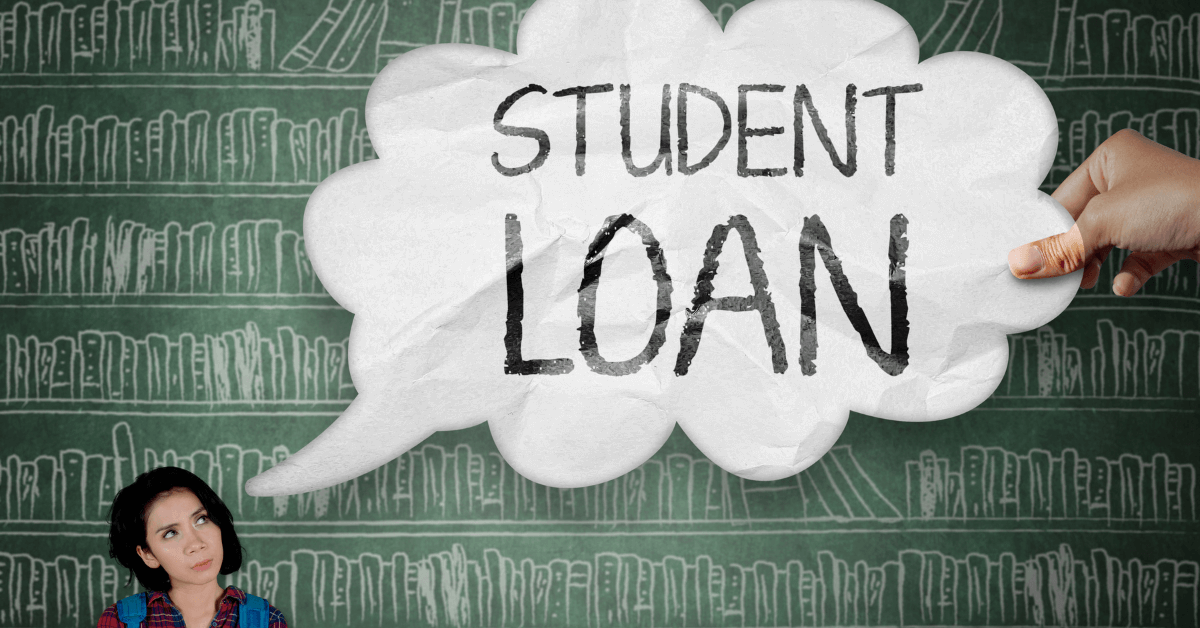Can I get a student loan in the Philippines? For many Filipinos, getting a college degree is the way to success and sometimes the way out of poverty. Education in the Philippines has become necessary alongside food, clothing, and shelter. But as the cost of living continues to rise due to many external factors (the Pandemic, rising oil prices, etc.), the prices of all those mentioned above also continue to go up, including the tuition fees of education at colleges and universities. Along this line, gadgets, computers, and an internet connection have also become a “need” for education.
It is where student loan Philippines comes in. Student loans in the Philippines can greatly help financially challenged families by allowing them to loan money from institutions so their child can finish their college education, earn a degree, and secure a professional and economic future. However, only a few Filipinos are aware of student loans. This guide will help you get started on how to choose an appropriate student loan and how to apply for one.
What is Student Loan?
A student loan is the means to borrow or “loan” money to pay for college or postgraduate education. The loan covers tuition and other school fees, books, supplies, allowances, living expenses, and miscellaneous school expenses like projects. While student loans are a usual way of life on the North American continent, Australia, the UK, and most of Europe, student loans are just coming into play in the Philippines. Financially strapped families in this country usually use financial grants or scholarships to augment education payments.
Depending on the type of student loan Philippines and the institution, the loan should be paid back during a set timeframe or loan term. For that loan term, the borrower has to slowly pay off the debt in monthly installments, including interest. A few lenders allow borrowers to start repaying the loan after they graduate or find a job.
The Difference Between Scholarships, Grants, and Student Loans Philippines
Scholarships are given to students who have passed specific academic requirements for eligibility and performance or have a particular skill set, as in sports. The school, government agencies, LGUs, and private institutions sponsor scholarships.
Grants are usually fixed amounts given for some time for students based on their economic status. This financial assistance usually requires students to maintain passing grades in all subjects, and the amount only covers the tuition.
As described above, student loans need to be paid back. Scholarships and grants are not considered loans or debts.
Advantages of Getting a Student Loan
Applying for a student loan is a practical option that parents or students can consider because:
1. Personal and bank loan interest rates can reach 0.69% and even higher. Student loans can be as low as 0.50% and usually don’t charge application fees.
2. No credit score is required, unlike bank and personal loans that need to check on the parent’s credit score. All a student needs is to submit the proper documents and requirements.
3. Most student loans in the Philippines allow borrowers to repay the loan after graduation or when they have found their first job.
4. A student loan the Philippines pay after graduation allows students to focus only on their studies. It also gives parents peace of mind and not worry about payments before examinations. The loan also teaches students the importance of managing finances properly, repaying debt, and fulfilling monthly obligations. It gives the student a good start in building a good credit history for the future.
Related: DSWD Educational Assistance in the Philippines
Where to Apply for Loans for Students Philippines
Here are the best (so far) student loans in the Philippines with quick processing and low-interest rates.
CHED Student Loan Program
The Tertiary Education Subsidy is the Commission for Higher Education’s student loan program. It is mandated under the Unified Financial Assistance System for Tertiary Education Act (UniFAST) or RA 10687. This law covers two key features:
- Tertiary Education covers higher education after the secondary level and covers degree, non-degree, postsecondary, Technical-Vocational Education and Training (TVET), and graduate education.
- Special Purpose Education Assistance – It covers activities related to continuing an education program that can include research or scientific studies at the college, master’s, and doctorate levels.
Take note that the top 10 graduates of any public high school receive priority on CHED loans
To apply for the loan, inquire directly at any CHED or TESDA office or government instrumentalities such as NCIP, OPAPP, DENR, DILG, DA, DND, DSWD, DOLE, and DOST.
SSS Educational Assistance Loan Program
Key features include:
- SSS members below 60 years old with a monthly income not exceeding P25,000 and at least 36 posted SSS contributions, 6 in the last 12 months before the loan application.
- Up to P20,000 per semester can be borrowed for a 4/5-year course and up to P10,000 per semester for a 2-year technical/vocational course.
- The interest rate is 6% per annum.
- The late payment penalty is 1% per month.
- Repayment of the loan is five years for degree courses and three years for tech/voc courses.
- Only one (1) beneficiary is allowed per member/borrower. Beneficiaries can be the member/borrower themselves, their legal spouse, and their child for unmarried members, full and half-siblings only. Beneficiaries should be a partial scholar or recipients of financial grants. They must be officially enrolled in any undergraduate course from schools accredited by CHED, TESDA, and Civil Aviation Authority.
- Requirements include:
- I filled out the SSS EALP application form.
- Valid IDs.
- Assessment/billing statement issued by the beneficiary’s school.
- Proof of relationship to the beneficiary (birth certificate, marriage certificate, etc.)
- Any proof of monthly income such as the latest payslip, certificate of employment and compensation, latest ITR or BIR Form 2316, or notarized affidavit of No Income or Affidavit of Source and Amount of Monthly Income.
To apply, submit all originals and photocopies of requirements to the nearest SSS branch. You can claim the check at the Administrative Section when the loan is approved. There is no online application for SSS EALP as it is not included in the E-Services of My.SSS portal.
Related: SSS Loan Requirements: For a Hassle-Free Application
GSIS Education Loan and Computer Loan Programs
Key features include:
- GSIS active members with permanent status with at least 15 years of government service.
- Up to P100,000 can be borrowed per school year for the education loan and up to P30,000 for the computer loan.
- The interest rate is 8% for education loans and 6% for computer loans.
- Loan repayments only start from the sixth year after the loan approval.
- The education loan is for student beneficiaries taking up a 4/5-year degree course. The computer loan is for members who need to buy a computer or other equipment to be used for studies and classes.
- Requirements for education loan:
- I filled out an application form.
- Photocopy of student’s latest tuition assessment. The original copy is for presentation to compare with the photocopy.
- Photocopy of school ID with three specimen signatures of the student on the same page.
- Requirements for computer loan:
- I filled out an application form.
- Two government-issued IDs or a UMID card.
To apply for an education loan, borrowers can use their eGSISMO account. Upload all documents and a picture holding the valid IDs. You will receive a confirmation in the email and a loan counseling session through video call. Submit original copies of all documents submitted through eGSISMO.
Attach the scanned copies of all documents and a picture holding the valid IDs to apply for the computer loan. Send the email to gsiscares@gsis.gov.ph.
You can also go to any GSIS branch and submit everything in person.
Pag-IBIG Multi-Purpose Loan
Although it is called a multi-purpose loan, it can be used to pay for a beneficiary’s tuition and other school fees. Any active Pag-IBIG member with at least 24 paid contributions and sufficient proof of income can avail of the loan.
- Up to 80% of the member’s regular savings can be borrowed.
- The interest rate is 10.5% per annum.
- The loan can be repaid from 24 up to 36 months.
- Requirements:
- Accomplished application form.
- Valid ID.
- Proof of income.
- Photocopy of payroll account or disbursement card.
To apply for the loan, submit the application form and all documents to any Pag-IBIG office and receive an acknowledgment. The loan amount is released on the scheduled approval date.
Landbank I-Study Program
- Anyone with an established repayment capacity and credit history can apply and borrow up to P300,000. Beneficiaries should not be a scholar or receive financial grants.
- The interest rate is 5% per annum. A 24% per year penalty for failure to pay the loan is charged. A loan processing fee and documentary stamp tax are charged.
- Repayment of the loan is one year for short-term and up to three years for term loans.
- Requirements:
- Accomplished loan application form.
- Borrower’s valid ID.
- Borrower’s proof of income, such as a certificate of employment or the latest three-month payslips. For self-employed, submit a business permit and the latest ITR.
- Proof of billing address and payment record from at least two utility or service companies.
- For incoming students – enrollment form or admission slip with school ID.
- For continuing students – the latest enrollment or registration form.
- Form 138 or Certified True Copy of Grades for the previous semester enrolled.
- Certificate of Good Moral Character issued by the school.
- Schedule of payment of school fees and other enrollment-related expenses for the semester or school year.
Submit all requirements to the nearest Landbank branch with a lending center to apply for the I-Study Program. The loan amount will be credited directly to the school’s bank account. If the loan’s purpose is for the purchase of electronic gadgets, the lump sum will be directly credited to the borrower’s Landbank account.
Bukas Tuition Installment Plan
Bukas is an education financing company licensed by the SEC to provide student loans for college students to the following partner schools: FEU, CEU, Mapua University, and Lyceum of the Philippines.
- Any Filipino undergraduate or graduate student 18 years old and above currently enrolled in any Bukas partner school can apply for the loan. The borrower must have a guardian or guarantor at least 21 years old. Parents can also apply on behalf of qualified students.
- Borrowers can loan up to 100% of the tuition amount.
- The interest rate is 1.5% per month.
- There is a service fee of 3% of the loan amount.
- Repayment of the loan is 12 months.
- Requirements:
- School ID.
- Tuition or assessment form issued by the school.
- Proof of residence.
To apply, open an account on the Bukas website, app.bukas.ph/register, complete the profile and fill out the application form. Upload images of each requirement above. A message from Bukas will be sent for the loan approval through call, text, or email.
Just a Few Things to Remember
Don’t Fall for Loan Sharks when searching for an educational loan Philippines. Don’t fall for illegal lenders or lenders that charge a very high-interest rate. Research the company’s background and check its lending license from SEC. To be safe, stick to the lenders mentioned above.
Talk to your parents before applying for a student loan. In the final decision-making, it falls on them since they will bear most of the burden. Discuss your college plans and the career beyond and why you need the student loan. Their wisdom and experience can help you make the right decisions about choosing a school, course, and lender.
Ensure the website and links are legitimate when applying for a student loan online. Hackers and fraudsters are always out there, ready to pounce on anyone’s identity or money.
Conclusion
With so many options and resources available for Filipino students, it’s important to avoid playing with money but get informed in advance. Student loan should be used after careful research and contemplation of both the pros and cons. They can be very useful when used wisely – as long as you determine what you need, you can decide whether a student loan Philippines is the right option. For a head start, look into payment schemes from educational institutions and government schemes that aim to provide financial aid to Filipino students in need. With these guidelines, now is the perfect time to secure your future education and benefit from all the opportunities offered!
Recommended: The Perfect Online Job for Students in the Philippines














Cathleen joy Moreno Bantogon
How can I apply the students loan